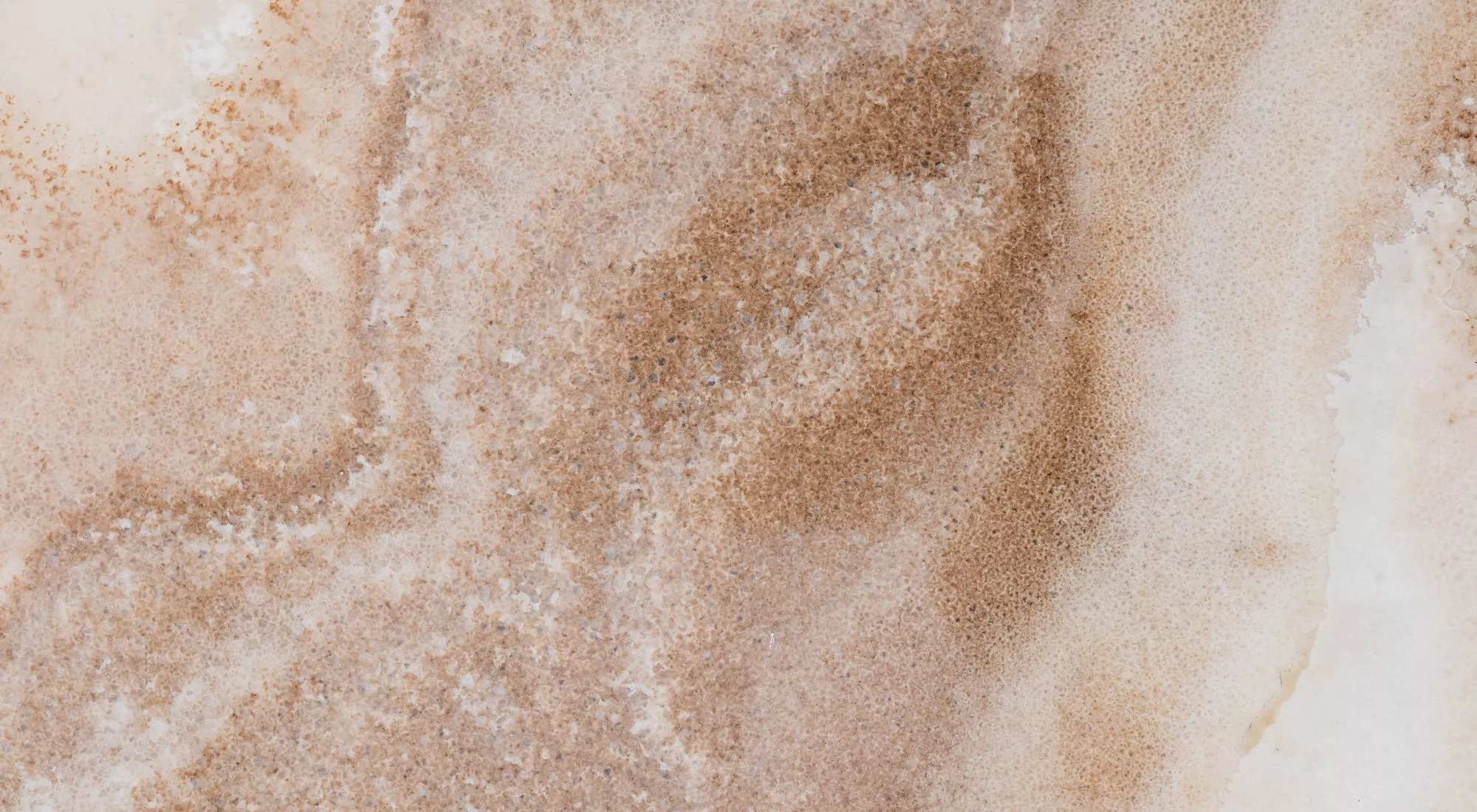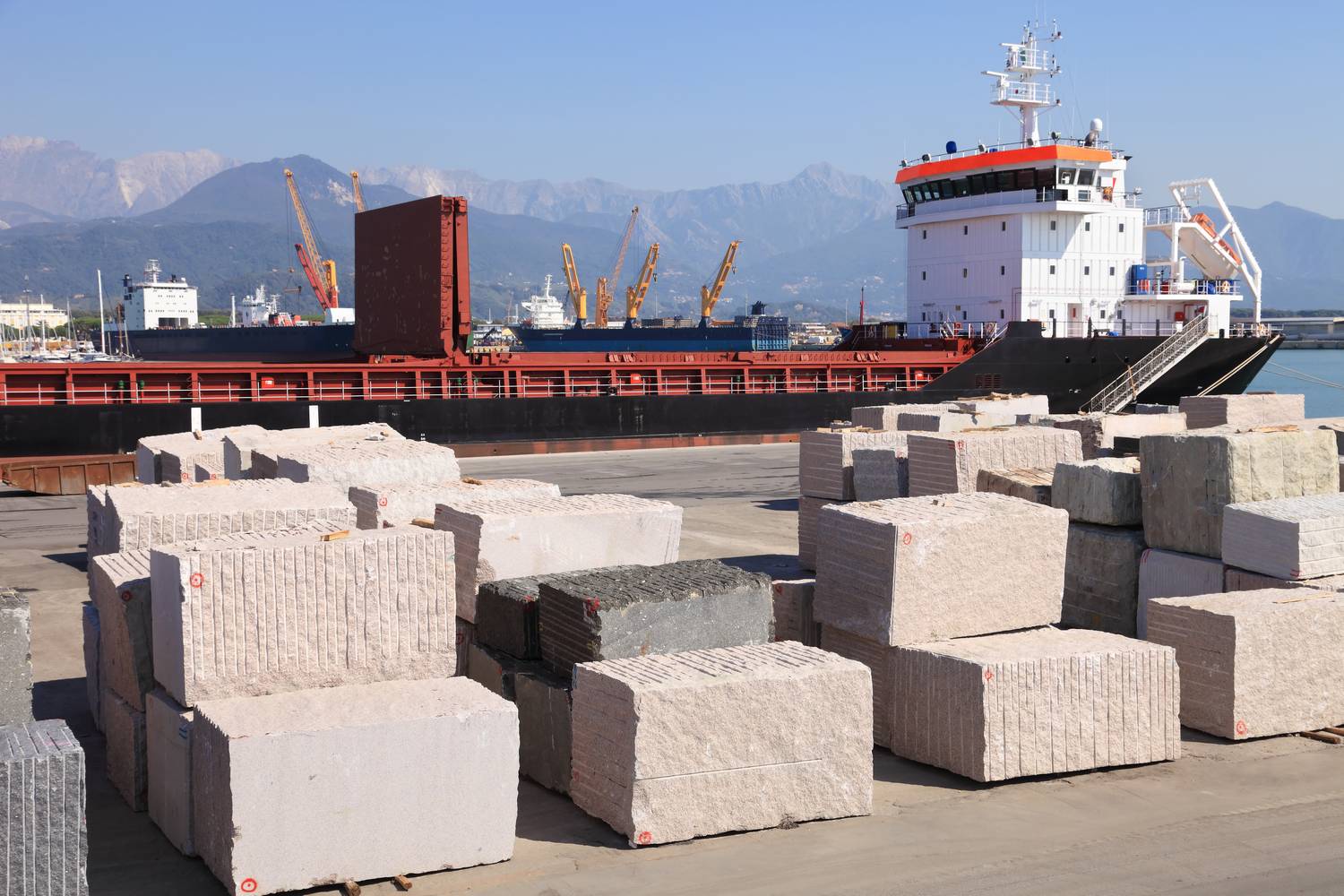Loss of revenue for local authorities: importing natural stone is costly
SNROR revealed the staggering conclusions of a study: it actually costs much more to import natural stone than to buy it locally.

With the cost of materials soaring, it is tempting for opinion leaders in the architectural and heritage sectors to pursue an already well-established habit: importing decorative and building stone to save money. But is the calculation that accurate? At the Rocalia 2023 trade show SNROC (the French natural stone professional union) revealed the staggering conclusions of a study: it actually costs much more to import natural stone than to buy it locally. Explanation.
The methodology of a study eagerly awaited by the industry
What are the economic, social and environmental benefits of buying ornamental stone locally versus importation? To analyze visible and hidden costs, SNROC commissioned the Brittany economic unit VËIA to investigate all the costs involved for two of France's most valued rocks, granite and limestone, in relation to typical landscaping projects. The CTMNC (French natural building materials technical center) provided their expertise for this study to assess the environmental costs.
The elements taken into consideration were:
- the initial cost of the raw material
- the cost of the carbon footprint (production and transportation), according to the polluter pays principle
- earnings and benefits for the State and local authorities, such as:
- VAT and other taxes
- income tax and social security contributions for jobs
- VAT on employee consumption
- no unemployment benefit to pay
While 50% of decorative and building stone is imported, the results clearly call for opinion leaders to reconsider old habits and break away from a short-term economic vision.

Hidden costs cause natural stone prices to skyrocket
If only the initial cost is considered, buying local natural stone is less competitive at first glance. But once all the socio-economic repercussions are factored in, the bill starts to rise.
granite
The analysis focuses on a typical 5,000m² granite pavement in Paris, and compares purchasing in France versus imports from Spain, Portugal and China. The calculated extra cost is:
- 27% more for imports from Spain
- 28% more for imports from Portugal
- 35% more for imports from China
Limestone
The analysis focuses on a typical 2,000m² limestone project in Paris, and compares purchasing in France versus imports from Spain and Turkey. The calculated extra cost is:
- 49% more for imports from Spain
- 35% more for imports from Turkey
In addition, the study calculated that 10 direct jobs in the decorative and building stone sector generate 10 indirect jobs and 3 resulting jobs, i.e., the amount of jobs is multiplied by 1.3. As a reminder, the French natural stone industry includes 640 companies, 6,100 direct jobs and 525 million euros in annual sales (1). Finally, the environmental impact is 2 to 4 times higher with the choice of importing natural stone.
The SNROC study shows that buying local natural stone has a positive impact in four areas:
- financial benefits for local businesses
- the carbon footprint
- local jobs (direct and indirect)
- and the contribution to the national and local budgets
Not to mention that it is an answer to the materials crisis!
Results that give the profession food for thought
“Brittany’s granite producers were astonished by the figures”, declared Matthieu Goudal (Granit SCB/GRV - Operations Manager and President of Association IG Granit in Brittany) at the conference. “We need to make as many people as possible aware of this study and make our professions more attractive. We should take a step back and modernize our companies to be more competitive and produce responsibly.”
For Vincent Guilbaud, SETP Sales Manager, the positive impacts of local purchasing are already visible, but under threat. “We’ve doubled our workforce in 10 years as a result of orders obtained on the French market. Today, we must face the problem of imported products, and this study can help us justify the price of our own products.”
This study will help raise awareness among local authorities of the importance of using local natural stone. Through education, the sector is continuing its efforts to encourage opinion leaders to adopt a more global vision, and hopes to curb the indiscriminate importation of natural stone.
Thanks to speakers Rachel Montier, VËIA Economic Intelligence Manager, Géraldine Cariou, VËIA Director, Matthieu Goudal, S.C.B Granits & GRV Operations Manager and Vincent Guilbaud, SETP Sales Manager for hosting this conference.
(1) SNROC: Chiffres clés de la filière pierre naturelle




